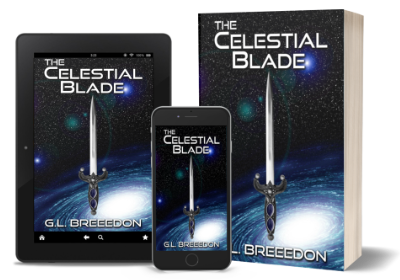It’s a busy week and there isn’t as much time for blogging as I would like. The day job is quite busy and I’m in the final stages of work on Summer’s Cauldron (YSG #2) so I can send it to the editors next week. I’m also reworking the cover for the first YSG novel, The Dark Shadow of Spring, to be more visually engaging and have a thematic look that will carry over for all four novels in the series.
I saw a fun essay at the AV Club about dystopian sci-films from the 1970s and it got me to thinking about the way the future gets represented in sci-fi. Actually, it got me thinking about more than that. I started out wondering why so few sci-fi stories (at least in film and TV) present a utopian tinged future and instead give us a glimpse of one or more versions of a dystopian nightmare. It also got me to thinking about how this dichotomy of utopia/dystopia plays out in fantasy stories.
Back in the fall I wrote a little blog about how our worldview informs the way we envision the future – as either darkness or light. I also had little reading list of utopia and dystopia lit.
My thoughts today are little different. It’s easier to find negative/dystopian sci-fi visions of the future in film and TV than positive/utopian visions. Star Trek, in all its various incarnations, is probably the most easily identifiable story set in an utopian, or at least semi-utopian, future. I think that is a strong component of its enduring popularity. In fact, I’m hard pressed to think of any other TV show or film that has quite that level of utopian appeal (Babylon 5, maybe – but I really can’t speak to that as I’ve never made it past the first season). The appeal to some future world where things will be better has a strong attraction for many people. Of course, it means that the stories will have to focus on building conflict and drama, not through struggles against or with society, but between characters, or between the utopian society and some external threat (the Romulans, the Klingons, the Borg, etc.).
The attraction of a dystopian setting for telling sci-fi stories is easy to see. A dystopian background creates foundational dramatic atmosphere for the story being told. Star Wars doesn’t work dramatically without out the evil of the empire. Battlestar Galactica wouldn’t have the same dramatic hook if the cylons aren’t trying to destroy the humans. A dark and stormy future makes it that much easier for the story tellers to capture the attention and the imagination of the audience.
I believe this same dichotomy of utopia-dystopian tension plays outing in fiction as well, both sci-fi and fantasy. In fact, I’ve always found it curious that so many fantasy stories, especially epic fantasy stories, are set in a version of the European Middle Ages, with magic added in. What’s curious about that, to me, is that I have always felt that while sci-fi is looking toward some golden (or dark) age in the future, fantasy is usually looking back toward some golden (or dark) age in the past. It’s curious that in looking back to some golden age of heroes and magic so many writers settle on the Middle Ages, rather than some point in pre-history. But, maybe that setting is the perfect combination of these utopian and dystopian impulses. The golden age of magic and heroes set in the darkest ages of European civilization.
That actually brings me back to the AV Club essay which spent most of its time discussing Logan’s Run. In a way, that film (and the book it was based on) area perfect combination of the utopian and dystopian story tropes. There is the bright golden future where everyone has every need supplied, but behind it is the dark reality of an early death, so that others can live long lives and control society at the expense of the young.
I must admit, these thoughts aren’t as coherent as I had hoped, but they will have to suffice, as I really need to get come editing done on Summer’s Cauldron.


